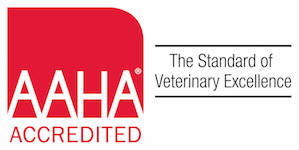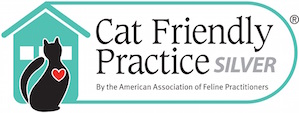Let’s talk about diarrhea! If you’re a pet owner, you’ve likely experienced a time when your animal companion exhibited this delightful ailment. Diarrhea is one of the most common reasons we see pets outside of their normal wellness exams. While there are many different causes of diarrhea, the most frequent cause we find is called “stress colitis.” You might also hear us call it “bacterial overgrowth” or “clostridial overgrowth.”
What causes stress colitis?
In short, stress colitis is caused by an imbalance of the bacteria residing in the gut. Every healthy GI tract should have a normal, flourishing population of different types of bacteria that help us with the absorption of nutrients. When these various colonies of bacteria become imbalanced, we can see diarrhea. One type of bacteria in particular, called Clostridium, is a common culprit for overgrowth and edging out other types of bacteria to cause diarrhea.
What causes this bacterial imbalance?
Truthfully, we don’t always know. However, there’s a high correlation of the diarrhea happening during times of STRESS (ie. while animals are boarding, after fireworks holidays, when guests are staying in the house, home construction projects, traveling, etc.) or with DIETARY INDISCRETION (ie. getting into trash, chewing on dead/rotting wildlife, eating half a pan of casserole, discovering the joy of hunting birds and small rodents, etc.)
What might you see from your pet when they have stress colitis?
Obviously, you’ll see diarrhea, which doesn’t need describing. And occasionally, the diarrhea can have blood in it. The good news is that, aside from the diarrhea, your pet usually feels just fine, with normal energy and appetite. Occasionally, animals are more sensitive to this, and might show more clinical signs like vomiting, decreased appetite and lethargy, but this is less common.
How do we diagnose this?
Your pet’s clinical signs and history are an important part of diagnosis. However, we can’t definitively diagnose this as the problem without a stool sample. Once you’ve done the dirty job of collecting a small fecal sample, we look at the contents under a microscope and check for clostridium and other cellular/bacterial abnormalities. This test is called a fecal cytology. Sometimes, we’ll also run a fecal flotation to ensure there are no GI parasites that could be contributing to the diarrhea.
How do we treat?
Fortunately, clostridial overgrowth usually responds very nicely to a course of antibiotics, probiotics and bland diet. Bland diets can be boiled chicken and rice or GI sensitivity diets (ie. Royal Canin GI low fat or Hill’s i/d).
Can I do anything to prevent this?
We wish there was an easy answer. Taking your dog for a long walk while the repairman is in the house or stopping your dog from chewing on the week-old deer carcass can be a good start, but it’s not a guarantee of prevention. If your pet seems to have clostridial overgrowth quite frequently, trying GI sensitivity diets and/or probiotics long term can be a helpful option. It’s also important to rule out other possible causes of diarrhea.
Here’s a quick Q/A regarding stress colitis:
Is this contagious? No. It’s your own animal’s GI bacteria and won’t be infectious to other animals or humans.
Can my pet get it more than once? Yes.
Can I keep antibiotics on hand to treat as needed? No. We don’t want to contribute to antibiotic resistance by using antibiotics intermittently. We’ll treat clostridial overgrowth as it happens with appropriate antibacterial protocols that prevent bacterial antibiotic resistance.
Can I keep probiotics on hand to treat as needed? Absolutely! Many dogs are on probiotics long term and this can be helpful in decreasing the frequency of GI upset.




